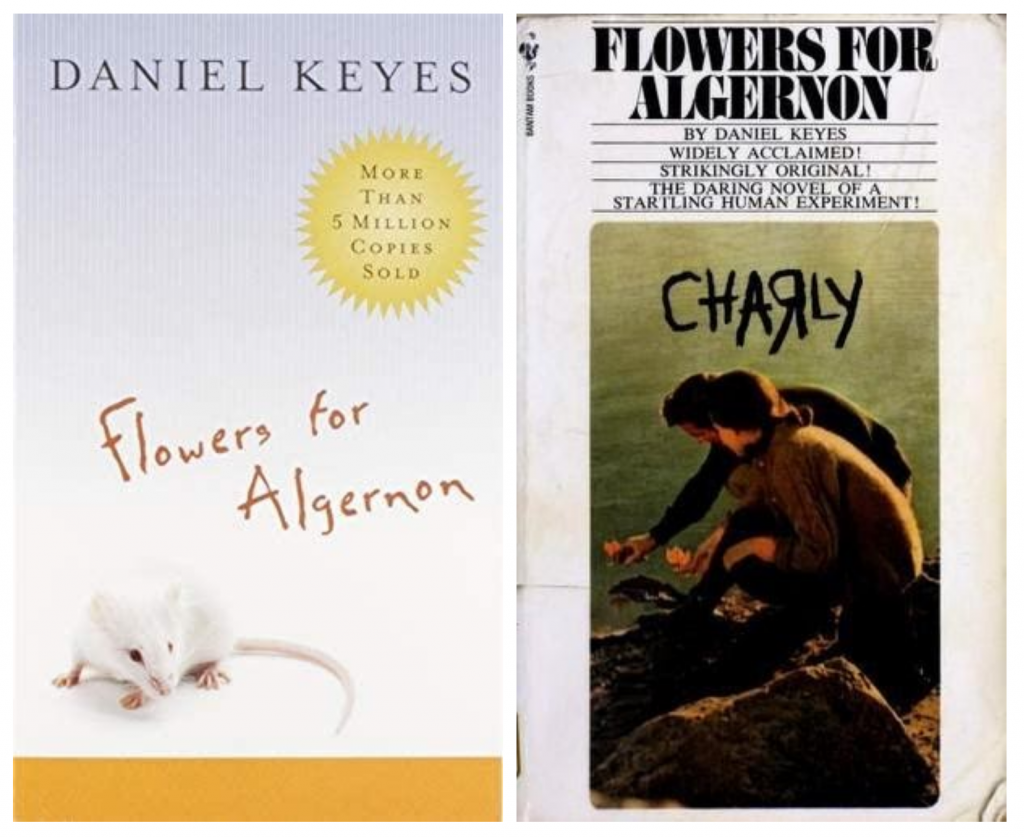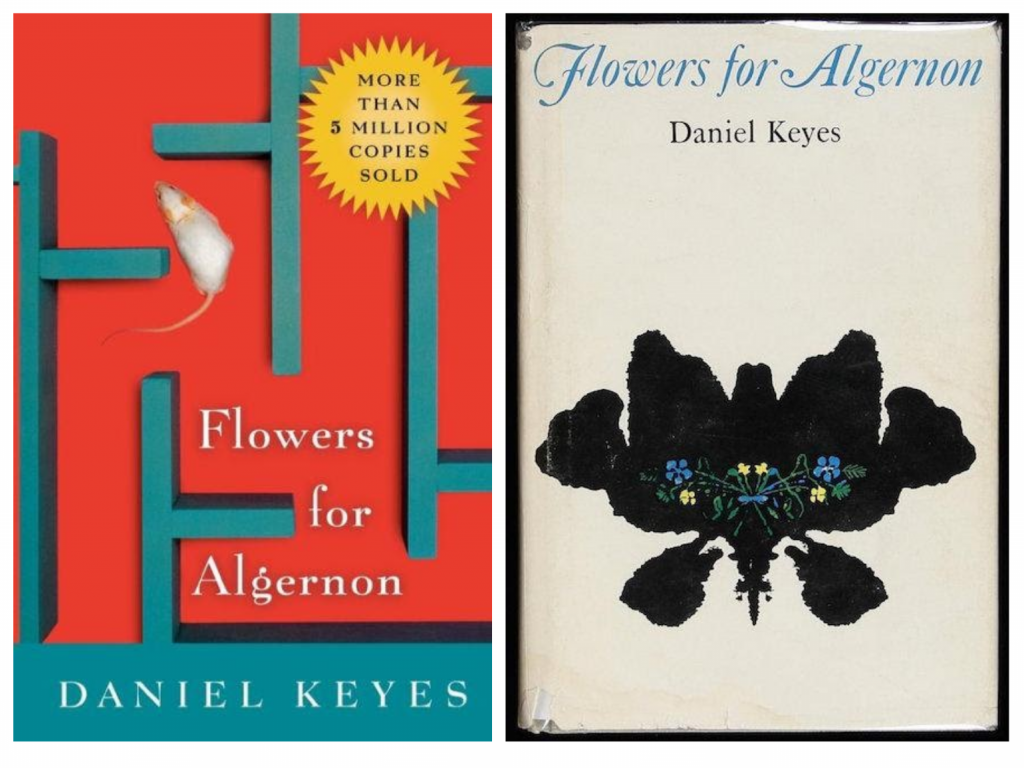By: Thomas Yager
Flowers for Algernon, by Daniel Keyes, tells the story of Charlie Gordon, a mentally disabled, middle-aged man who takes part in an experimental procedure aimed at increasing intelligence. Charlie is determined to get smarter and willing to put in the work required to do so. He is the first human subject to undergo such a procedure, only a laboratory mouse, Algernon, has been tested prior to confirm the operation’s effectiveness. The book is told via a series of ’progress reports’ written by Charlie himself, tracking his experiences and thoughts leading up to and following the procedure.
As Charlie’s intelligence increases, he grapples with newfound thoughts concerning love, his own identity and past, personal and societal guilt, and forgiveness. His relationships with those around him, such as the lab professors, Strauss and Nemur, his former teacher, Alice Kinnian, and the employees of his work, Donner’s Bakery, all develop in complex ways as Charlie undergoes his change, seeing these people in a brand new light. Additionally, Charlie is haunted in many ways by his past life, remembering how his family and others treated him, and must face these thoughts head-on as he continues to grow. As the book progresses, Charlie works through the frustrations he feels and comes to terms accepting who he is.
Flowers for Algernon first began as a short story published in The Magazine of Fantasy and Science Fiction in 1959. The story went on to win the Hugo Award for Best Short Story in 1960, and was reprinted in other publications following the win in 1960 and 1961. The story was then rewritten and expanded into a novel, published initially in 1966 with a paperback version following in 1968. The novel has never been out of print since its initial publication and has sold over 5 million copies. The novel won the Nebula Award for Best Novel in 1966 and was nominated but lost the Hugo Award for Best Novel in 1967.
Flowers for Algernon has become a popular novel taught in many different schools across the United States, and as such, has an extensive challenge history attached alongside it. The text appears on the ALA’s most challenged books list of 1990-1999. Most frequently, these challenges stem from the parts of the novel in which Charlie wrestles with the understanding and expression of his sexual desires. Depictions of sexual encounters with Charlie’s former teacher Alice, and Fay, a free-spirited next-door neighbor of his, have led to a plethora of objections from concerned parents comparing the book to pornography in rare cases. While largely unsuccessful for the most part, in some cases these challenges have led to bans. Cities such as Emporium, Pennsylvania, Glen Rose, Arkansas, and Plant City, Florida have all prohibited access in schools throughout the novel’s lifespan. Other reasons for objection have centered around adult themes, profanity, and drinking, albeit much more infrequently.
About the Author
Daniel Keyes (b. 1927) was born in Brooklyn, New York. He completed his education at Brooklyn College, earning a bachelor’s degree in Psychology and later a master’s in English and American literature. His most notable works include Flowers for Algernon and The Minds of Billy Madigan. Keyes taught creative writing at Ohio University beginning in 1966, and was honored with Professor Emeritus status in 2000.
Further Reading
- A History of Daniel Keyes’ Flowers for Algernon
- Rutgers University Libraries: Flowers for Algernon
- Censored Books: Critical Viewpoints, Volume 1 (p.249-255)
- Flowers for Algernon ban (Glen Rose, AK)
Alternate Covers

